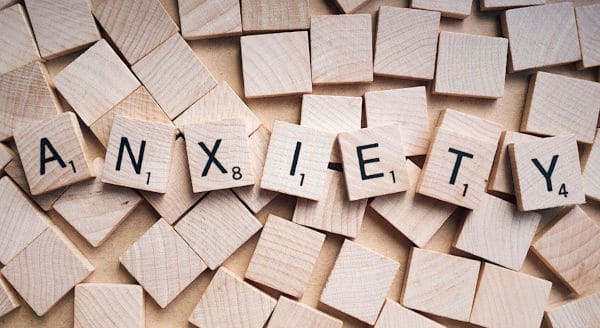Given its numerous benefits and proven positive impact on promoting the general wellbeing of an individual, meditation is encouraged on many platforms. The act of building up one’s awareness and in search of mental clarity and calm has been shown to offer benefits such as increased attention span, help combat anxiety, and restlessness, reduces stress and improved self-awareness, among other benefits. (Further reading: 8 Health Benefits of Meditation – What the Newest Research Shows)
The attention given to the benefits of meditation and the numerous public figures promoting its effectiveness means lesser attention has been paid to the harmful effects the practice may have. Fortunately, several institutions have taken steps in researching the practice and have established several negatives.
Warnings associated with meditation have a sense of irony, with several side effects being the same issues that meditation usually solves. Knowing the potential side effects allow you to be observant and take the right precautions when meditating. Here are the warnings about meditation you should take heed.
1. Headaches
The effort to focus your mind on a particular topic or subject to attain clarity can be taxing to your brain. Before you get used to meditation, it resists the attempts of focusing, which results in tension both mentally and physically. A build-up in the stress causes headaches and discomfort.
Specific techniques like Third Eye, require considerable exertion of the mind and added to the increase of electrical activity in the brain due to the transformation happening in mind. Another cause of the headaches is the switch on and off from normal state to meditative states and being extreme states; the brain is under great strain.
2. Anxiety and Panic Attacks
Research has established that while meditation techniques like mindfulness can help reduce anxiety, they can also cause it. The risk is higher, and the effect more adverse for people having emotional disorders, according to the researchers.
Anxiety, stress, fear, panic, and low moods are states people can experience during and after meditation. Schizophrenia patients will also experience psychosis as a direct result of meditation.
People with a history of emotional disorders and panic attacks need to consult a doctor before engaging in meditation and probably have someone with them when doing it.

3. Hypersensitivity to light and sound
Several meditation techniques require focusing on objects, and in the process, some people may focus on views and focus on them a bit too much, which will result in complications.
The research by Brown University revealed that hypersensitivity to light and sound and insomnia were among the conditions most experienced by many people.
Several people also noticed that their sensory perceptions like smell, hearing, and sight were altered during meditation.
Many participants have experienced illusions, hallucinations, and visions which, if not understood to be impermanent, can have adverse effects on the individual. Besides increased sensitivity to sound and light, one can also experience time and space distortion.

4. Movement problem
The most common postured taken by people when meditating also results in movement challenges and can even cause falls. During meditation, according to research by an expert from the University of Pennsylvania, blood-flow to certain brain parts is restricted.
The posterior superior parietal lobe is the part of the brain which is responsible for navigating our movement in our surroundings. People coming from meditation may experience the disorientation that people with damaged posterior lobes do experience.
Another challenge meditation may cause to your movement are the strains it places on the back, shoulders, and neck. Over time, especially when you meditate daily, these parts will feel stretched and may require warming up before and after meditation to prevent pain and discomfort during movement.
Do you want to learn more about Meditation? Check out our recommendations at “Meditation Bookshelf” and many free resources at our “Free MeditationLibrary“ – Opens in new tab
5. Mental atrophy
Mental atrophy is another side-effect that faces users of meditation. In this case, the side-effect largely depends on the technique used. Cerebral atrophy occurs because the brain is deprived of a stimulus that affects its sensory ability. When meditation is done in open surroundings, one becomes aware of varied stimuli.
Breathe focused meditation, on the other hand, results in sensory deprivation. When carried on for a prolonged period, it can lead to brain atrophy and, in turn, result in difficulties when performing certain brain functions. Cognitive functions like arithmetic and even memory reliant ones are the ones negatively affected.

6. Reliving painful memories
Meditation results in achieving more profound internal calmness and clarity, which makes people aware of their inner thoughts, emotions, and memories. Some of these could be memories you have suppressed in the past because they are harmful and painful. Becoming aware of them may be akin to reliving the experiences all over again, which may be too much to bear.
While it should be treated as an opportunity for growth and self-introspection, the emotions can be too overwhelming, and one may not be prepared to handle them. Such a state can cause paranoia, fear, and depression.
Some people have also reported having to relive traumatizing experiences they started having after meditation.
Related reading: 4 Documented Meditation Benefits for the Brain You have to know – Opens in new tab
7. It may prompt negative thinking
One of the goals most people seek to achieve through blending is positive thinking and a positive outlook on life. Unfortunately, not everyone realizes this goal dues to the range of emotions and experiences people go through.
Negative thinking can be caused by the irrational, delusional, and paranormal thoughts experienced during meditation.
The loss of executive function as well self-control as some experience further dampens the outlook people feel, especially when they cannot get things done or empathize with themselves. A Seattle Pacific University research had many participants reporting feeling delusional after meditation.

8. Once can become poor at social relationships
As one gets more in touch with himself, the relationships with others around him change, and in some cases, this happens negatively.
Participants in the Brown University study indicated that they had a challenge interacting with others normally. A significant number reported being socially impaired, and many other people have reported difficulty integrating back to society after a heavy session of meditation.
In some cases, even occupations became affected as they generally needed interacting with other people.
9. It can be disempowering
The benefits of meditation, such as having peace and calmness in situations where one cannot change, can have the negative effect of making people overly compliant and passive.
The core benefit of mindful meditation is being calm and distressed in challenging situations. Unfortunately, this may result in most people being passive and disconnected from circumstances they should be taking action to change.
Meditation makes them pursue internal clam and become passive and compliant to suffering, and injustices lie oppression and inequality in their environments.
Related reading: Guide to Different Types of Meditation Practices – Opens in new tab
10. Increased risk of seizures
Mediation results in changes in the autonomic functions of your body. While this effect can be useful for conditions like high blood pressure, it can also have adverse effects on your brain.
According to an experiment done on the meditative state of mind, it has been shown to cause chemistry and physiological changes to the brain that cause seizures and even epilepsy.
Meditation results in changes in either the amount of brain serotonin and EEG activity. Any change in the two factors can cause seizures, and therefore several medical experts issue this as a warning to people engaging in meditation.

11. Kills your sense of motivation
Another significant side effect you should be aware of is the loss of motivation.
It is one of the findings established in the Browns University 2017 research. From the study, many participants found themselves losing interest in activities they previously enjoyed doing.
The primary cause of the loss of motivation was the lack of attachment participants in the research gained when using meditation. As a result, people struggling with procrastination or seeking motivation to build their enthusiasm can suffer after frequent use of meditation.
It is essential for people trying to have the ability to disassociate themselves with their surroundings and happenings around them, to be aware of this effect.
12. Using meditation as an escape
Another challenge comes not as a side effect but as an addiction to meditation.
Because of the calming effect, people get when in meditation, there are some people, particularly those who practice concentration techniques, use it as an escape from life realities.
While the essence of meditation is to provide the individual with an avenue to release stress, it should not become a way to escape life realities. When it becomes an addiction, all the other side-effects become accentuated, and the benefits become marginal with time.
Meditation should be used as a tool to help you handle life’s hardships, not escape them.
Conclusion
Meditation has many proven benefits, especially to the mental health of an individual. This article does not aim to discourage you from seeking to enjoy these benefits.
However, it aims to make you aware of the various risks associated with them so that you can understand where you need your doctor’s advice on whether to engage in it or the type of technique to use.
In other cases, you are well prepared to face any risks by having foreknowledge of these warnings.
Do you want to learn more about Meditation? Check out our recommendations at “Meditation Bookshelf” and many free resources at our “Free MeditationLibrary“ – Opens in new tab
Stay in Touch
 Join our newsletter by using the forms on this website or click here!
Join our newsletter by using the forms on this website or click here! Follow us on Google News
Follow us on Google News Follow us on Facebook
Follow us on Facebook
Featured Image by photosforyou from Pixabay







